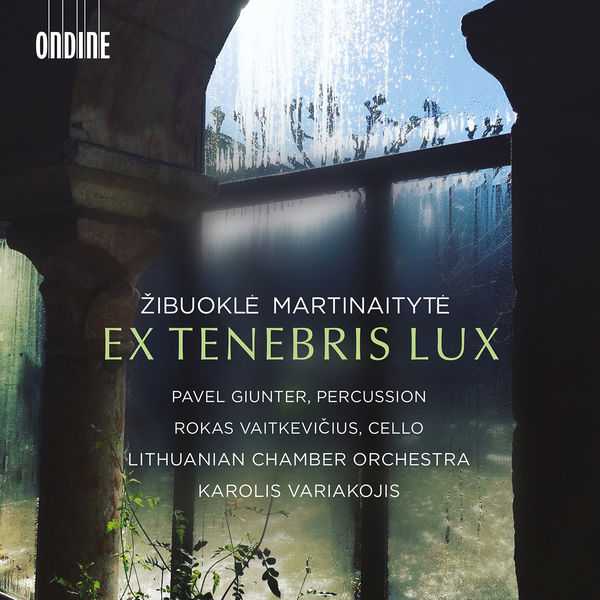

Composer: Žibuoklė Martinaitytė
Performer: Pavel Giunter, Rokas Vaitkevičius
Orchestra: Lithuanian Chamber Orchestra
Conductor: Karolis Variakojis
Format: FLAC (tracks)
Label: Ondine
Catalogue: ODE 1403-2
Release: 2022
Size: 1.24 GB
Recovery: +3%
Scan: yes
01. Nunc fluens. Nunc stans.
02. Ex tenebris lux
Sielunmaisema
03. I. Winter
04. II. Spring
05. III. Summer
06. IV. Autumn
This second Ondine recording of music by Žibuoklė Martinaitytė (born 1973) is devoted exclusively to works scored for string orchestra, all of which were composed in the last three years. Based in New York City, Martinaitytė has begun to be recognized in the United States as well as throughout Europe; recently her orchestral work Saudade was performed on a subscription concert by the New York Philharmonic. Martinaitytė continues to refine her carefully crafted musical compositions which are equally inspired by the external natural world and internal psychological realms, but which are all filtered through her desire to create music that, first and foremost, is beautiful.
The title of Nunc fluens. Nunc stans. (2020) originates from a quote from The Consolation of Philosophy, a treatise written in the Sixth Century C.E. by the Medieval Roman thinker Severinus Boethius (c. 477-524): “Nunc fluens facit tempus. Nunc stans facit aeternitatum.” (“The now that passes creates time; the now that remains creates eternity.”). Martinaitytė composed this very slowly unfolding music during the early months of the global pandemic as a direct artistic response to the precarious and uncertain times in which we are still living. “Suddenly we all found ourselves having just a present moment”, Martinaitytė has written. “The future was uncertain and therefore irrelevant; it was absurd to even think of it. The past vanished, becoming more and more like a dream. We had only Now, which seemingly lost its flow and stood still for a while. Days were passing and weeks, and there was no change. Only the Now remained…”
Ex Tenebris Lux (2021) is the most recent piece featured herein. It is scored for a total of 18 stringed instruments (eight violins, four violas, four cellos, and two doublebasses) and each player has a unique part. The work, whose Latin title means “from darkness comes light” is also a musical response to the current world health crisis. The resultant nearly 25-minute continuous sonic arc that Martinaitytė fashioned in response charts a journey from a very contained low and morose yet serene dirge to an expansive soundscape spanning the entire range of the string orchestra that is ecstatic and radiant.
Sielunmaisema (2019) is a hefty 34-minute work for solo violoncello and a large string orchestra requiring a minimum of 21 players. It is constructed from a very fundamental aspect of time: the cycle of a year. Its four movements are named for winter, spring, summer, and autumn, which can also each be played separately as self-contained works. Martinaitytė’s music is introspective, as can perhaps be gleaned from her overall title for the work, a Finnish word which means a “soul-landscape, a particular place that a person carries deep in the heart and returns to often in memory”. Martinaitytė has explained that for her such a soul-landscape is directly related to her experience of having lived in two very different cultures and two very different physical spaces: “Soul-landscape is related to questions of identity and place which resonate with two parallel cultural identities that I carry within – my native Lithuanian and later acquired American. My physical home keeps changing and the only thing that remains is music”. Ultimately, these four movements are sonic portraits of the composer’s internal responses to the four seasons rather than direct portrayals of each of these seasons in sound.



